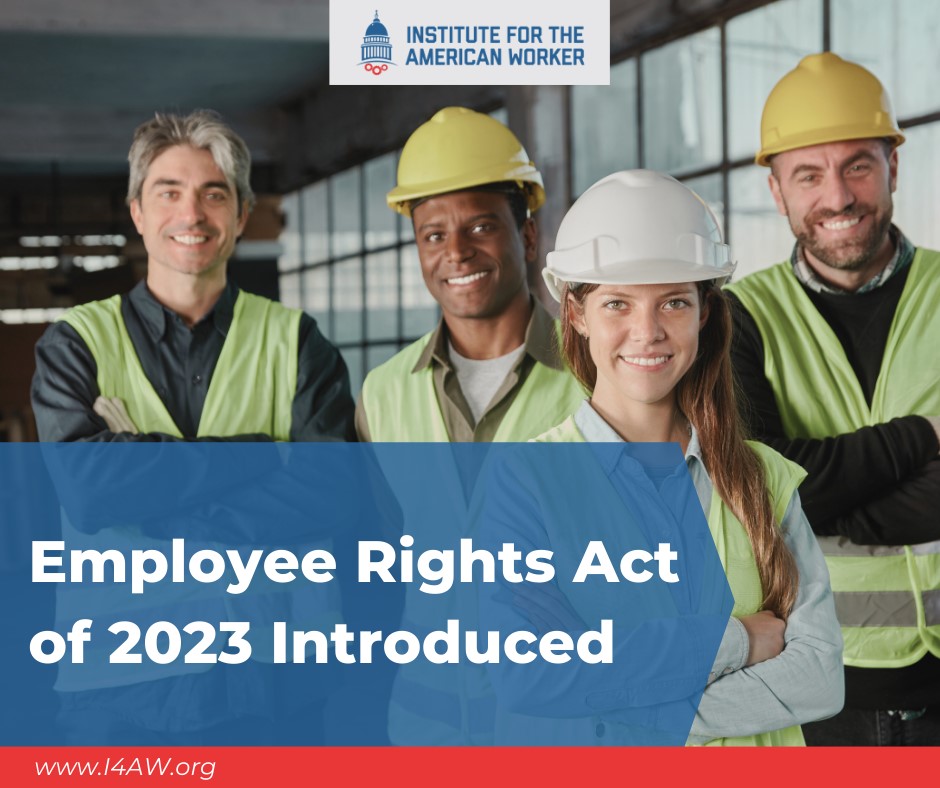Posts tagged federal law
The future of white-collar work may be unionized
October 10, 2025 // “The way layoffs happened at Google, where it wasn’t clear what the reason for people getting laid off was, definitely created a sense of job insecurity and mistrust,” says Parul Koul, a software engineer at Google and president of the Alphabet Workers Union. Another driver has been artificial intelligence threatening to replace entry-level knowledge work. Few white-collar industries epitomize the challenge of integrating AI into workflows more than the practice of law. While many legal experts say AI will have a transformative impact by automating repetitive research tasks, some also fear it will dilute entry-level associate roles at law firms.
Right to Work Foundation Urges Ninth Circuit to Reject CA Law Granting Union Bosses Massive Power Over Cannabis Industry Workers
October 9, 2025 // The Foundation’s amicus brief argues in particular that the National Labor Relations Act (NLRA) preempts California’s “labor peace agreement” statutes. The NLRA is the federal law that governs most private sector labor relations. The four conditions mandated for cannabis companies under California law, “an agreement with a…union, a ban on disrupting union organizing, a ban on union members picketing, boycotting, or striking, and a clause granting union organizers access to employees at work” all concern activity that the U.S. Congress intended the NLRA to deal with – not state law.

Cincinnati Metro union placed in ‘temporary trusteeship’ by international affiliate
September 29, 2025 // https://www.wcpo.com/news/local-news/i-team/cincinnati-metro-union-placed-in-temporary-trusteeship-by-international-affiliate
National Right to Work Foundation Files Appeals Court Brief in Support of Trump Order Cutting Federal Union Bosses’ Coercive Power
September 20, 2025 // Brief emphasizes President’s authority under both Constitution and federal law to reduce scope of union monopoly bargaining control

Opinion: Hochul must shame LIRR unions —by revealing their outrageous strike demands
September 15, 2025 // The agency’s overtime spending regularly stands out by national standards (only periodically rivaled by the MTA’s other big rail outfit, Metro-North, which is stuck operating under the federal law that governs the LIRR). LIRR employees in 2023 made an average of more than $26,000 each in overtime alone.

Congress Probes Powerful Teachers’ Union Brass Spending Funds On Limo Rides
August 7, 2025 // The House Education and Workforce Committee inquired about public records showing that the American Federation of Teachers (AFT) spent more than $100,000 on private limousine services since September 2023 in a Thursday letter to the AFT. Lawmakers have also received reports from unnamed sources that Weingarten, the union’s president, has paid for other conveniences such as a private driver, the letter says.
New Game Plan: White House and Congress Move to Clarify Student Athlete Unionization Rights
July 31, 2025 // The SCORE bill’s ban is broad. Its key provision says, in part: “no individual may be considered an employee of an institution, a conference, or an interstate intercollegiate athletic association based on the participation of such individual on a varsity sports team or in an intercollegiate athletic competition as a student athlete.” In addition, the bill blocks states from enforcing any law that “governs or regulates the compensation, payment, benefits, employment status, or eligibility of a student athlete (including a prospective student athlete) with respect to participation in intercollegiate athletics.” It specifically blocks any state law that “relates to the right of a student athlete to receive compensation or other payments or benefits directly or indirectly from any institution, associated entity or individual, conference, or interstate intercollegiate athletic association.”
New lawsuit scrutinizes Hegseth’s implementation of Trump’s anti-union EO
July 30, 2025 // While previous lawsuits argued simply that President Trump’s citation of the 1978 Civil Service Reform Act’s so-called “national security exemption” en masse violated federal regulatory law, a new suit from IFPTE drills down on the Defense secretary’s implementation of the controversial edict.
Michigan-Based Rieth-Riley Asphalt Worker Submits Legal Brief Urging 6th Circuit to Protect Workers’ Right to Vote Out Unpopular Union
July 28, 2025 // While Kent and his fellow employees were eventually able to exercise their right to vote on the IUOE, the NLRB in 2022 dismissed his petitions and halted the election, declining to count the already-cast ballots just hours before the vote tally, calling it a “merit-determination” dismissal. This dismissal was based on unfair labor practice allegations the IUOE filed against Rieth-Riley management in 2018. But the NLRB never held a hearing on whether those alleged practices had any connection to Kent and his coworkers’ desire to oust the union. Kent’s brief urges the Sixth Circuit to use Rieth-Riley Construction Co. as an opportunity to invalidate the NLRB’s “merit-determination” dismissal policy. The brief also asks the Court to order the NLRB to take the long-overdue step of counting the ballots in Mr. Kent’s decertification election, so he and his coworkers can properly exercise their right to vote on the union.

Rep. Allen, Vinnie Vernuccio: How to empower workers and improve unions
June 26, 2025 // The ERA will protect workers’ rights while refocusing unions on their core mission of representing employees. It will give workers and entrepreneurs the confidence to champion their future and shape our economy for decades. The ERA protects and promotes the foundational elements of the modern economy. It ensures that workers of all backgrounds can continue pursuing their American dream by guaranteeing their right to decide how and when they work as independent contractors. That fundamental right has long been under attack and in danger due to conflicting federal laws, regulations, and rulings. The ERA also ensures that Americans can continue to pursue entrepreneurship through franchising by permanently clarifying the shifting and incompatible “joint employer” standards that have threatened this long-standing small business model.
